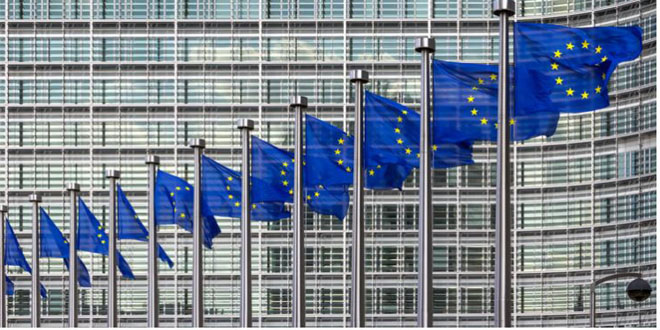A new draft of European Union legislation proposes that developers of artificial intelligence (AI) tools like ChatGPT must disclose copyrighted material used in building their systems.
Members of the European Parliament have reached a preliminary agreement on the EU’s AI Act, with new provisions added that will require generative AI developers to disclose copyrighted materials used to build their models.
By F2
/ Tuesday , June 24 2025
The U.S. House of Representatives has banned congressional staff from using WhatsApp on government devices due to security concerns, as...
Read More
By F2
/ Tuesday , June 24 2025
Kaspersky found a new mobile malware dubbed SparkKitty in Google Play and Apple App Store apps, targeting Android and iOS....
Read More
By F2
/ Tuesday , June 24 2025
OWASP has released its AI Testing Guide, a framework to help organizations find and fix vulnerabilities specific to AI systems....
Read More
By F2
/ Tuesday , June 24 2025
In a major milestone for the country’s digital infrastructure, Axentec PLC has officially launched Axentec Cloud, Bangladesh’s first Tier-4 cloud...
Read More
By infosecbulletin
/ Monday , June 23 2025
A hacking group reportedly linked to Russian government has been discovered using a new phishing method that bypasses two-factor authentication...
Read More
By infosecbulletin
/ Wednesday , June 18 2025
Russian cybersecurity experts discovered the first local data theft attacks using a modified version of legitimate near field communication (NFC)...
Read More
By infosecbulletin
/ Tuesday , June 17 2025
Cybersecurity researcher Jeremiah Fowler discovered an unsecured database with 170,360 records belonging to a real estate company. It contained personal...
Read More
By infosecbulletin
/ Tuesday , June 17 2025
GreyNoise found attempts to exploit CVE-2023-28771, a vulnerability in Zyxel's IKE affecting UDP port 500. The attack centers around CVE-2023-28771,...
Read More
By infosecbulletin
/ Tuesday , June 17 2025
The U.S. Cybersecurity and Infrastructure Security Agency (CISA) has recently included two high-risk vulnerabilities in its Known Exploited Vulnerabilities (KEV)...
Read More
By infosecbulletin
/ Monday , June 16 2025
SafetyDetectives’ Cybersecurity Team discovered a public post on a clear web forum in which a threat actor claimed to have...
Read More
This requirement could provide publishers and content creators with a means to seek profit shares when their work is used for AI-generated content. The EU bill leads the global push for AI regulation and is expected to be finalized and passed later this year.
Generative AI models are trained on billions of existing works to create content and have caused ire among content creators, who say they should be compensated.
EU legislators considered outright banning the use of copyrighted material in AI models but instead agreed on a transparency requirement, which has been praised as a compromise that regulates AI without stifling innovation.
The EU started drafting its AI Act in 2021 and focused initially on the use of artificially intelligent tools, classifying them according to the perceived level of risk they pose, from low to unacceptable. The strictest rules are reserved for the most high-risk applications, such as biometric surveillance or spreading misinformation.
The focus shifted to generative AI in the wake of the viral success of OpenAI’s ChatGPT, released in November.
Italy temporarily banned ChatGPT on privacy grounds, and governments, including the US, the UK, and China, are exploring AI regulation, with rules made in the EU capital Brussels often setting legal precedents worldwide.
 InfoSecBulletin Cybersecurity for mankind
InfoSecBulletin Cybersecurity for mankind














